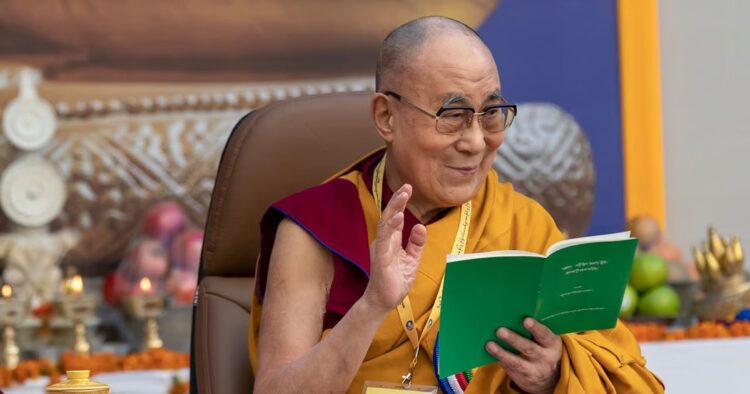Amidst escalating tensions over the succession of the 14th Dalai Lama, Bharat has lashed out China’s attempts to exert control over the reincarnation process.
Sources from Bharat have criticized China for asserting that its approval is necessary for the selection of the next Dalai Lama, emphasizing that such interference is unwarranted and against the traditions of Tibetan Buddhism.
Highlighting historical precedents, Bharatiya officials pointed out that the Dalai Lama institution predates the formation of the People’s Republic of China (PRC) in 1949, dismissing China’s claims to authority.
The first Dalai Lama was born in 1391 and the People’s Republic of China was established in 1949. ”How can they have claim over an institution that precedes their formation,” sources questioned. The Dalai Lama had formally set up the institution of the Ganden Phorang in 1642 which is before the PRC was formed.
They questioned the marxist nation’s motives, particularly noting past derogatory remarks and actions against Tibetan Buddhism, including the abduction of the 11th Panchen Lama and the imposition of restrictive policies on monastic education and religious practices in Tibet.
Bharat, with its deep historical ties to Buddhism as the birthplace of the religion, asserts its legitimate role in safeguarding the Dalai Lama’s succession process. The government has pledged support for the 15th Dalai Lama in accordance with Tibetan traditions, denouncing external interference and affirming its commitment to uphold the sanctity of religious matters concerning Tibetans.
Bharat should be seen as the main unifying force in safeguarding the sanctity of the succession process which will remove doubts and anxiety from the minds of Tibetans. In this context, the Government of India must publicly endorse the statement of His Holiness the 14th Dalai Lama, on the issue of his reincarnation made on September 24, 2011.

















Comments